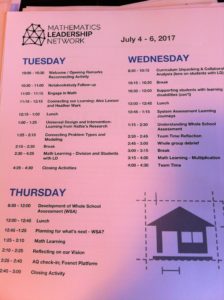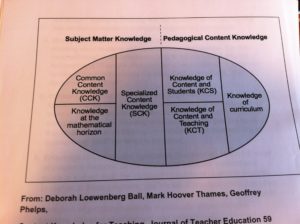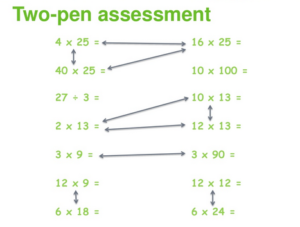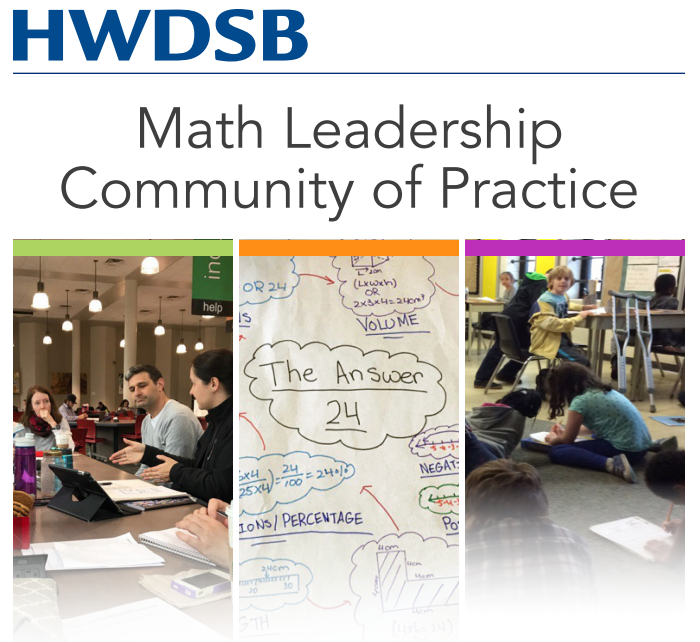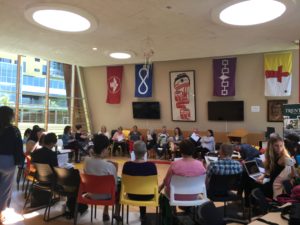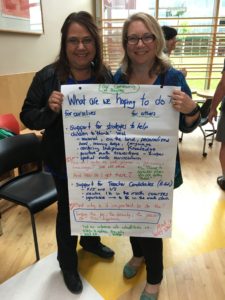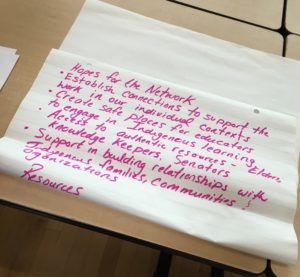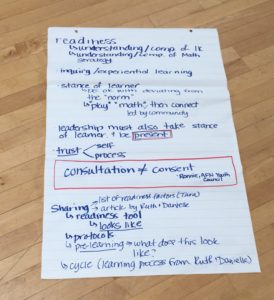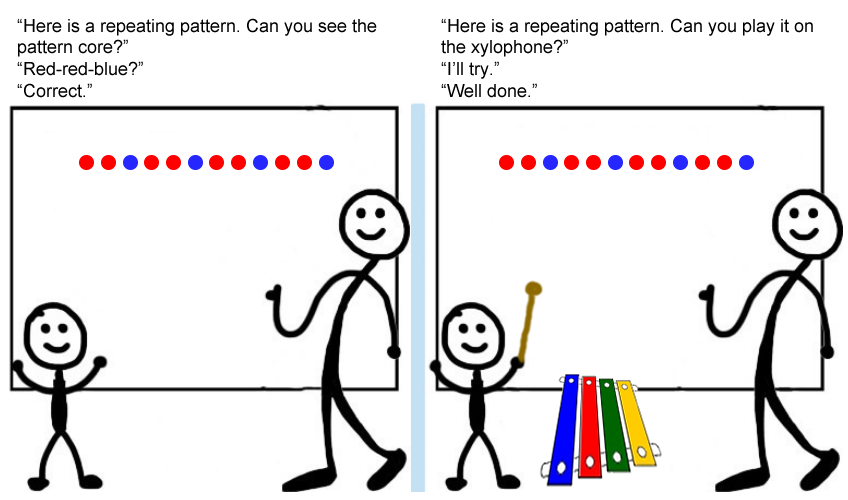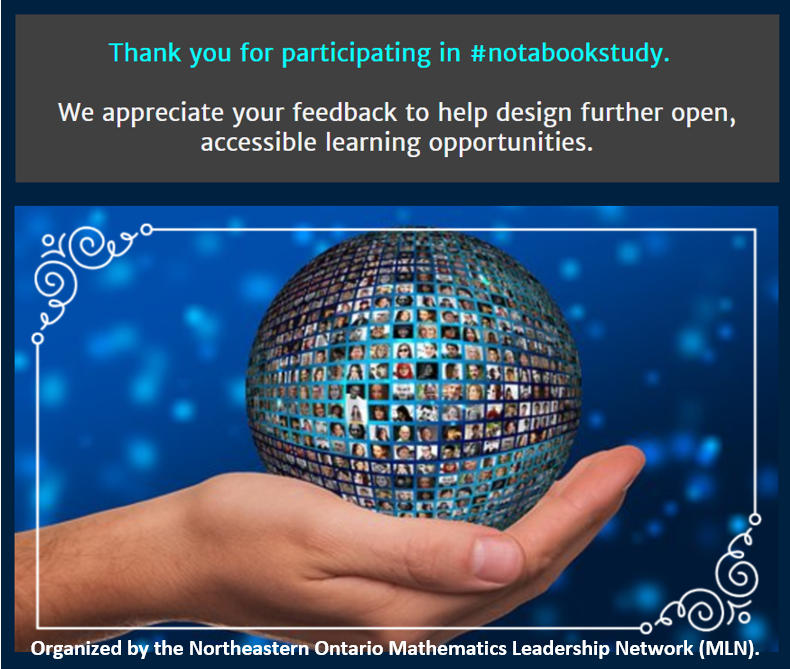Celebrating their first-year anniversary, the Mathematics Leadership Network (MLN) (a partner in our Math Leadership CoP), centered in Sudbury, organized another face-to-face meeting of its members. The three days of the meeting were filled with excitement about learning and teaching mathematics, networking between participants, and discussing aspects of school inquires. The meeting was well attended by leadership groups from the participating school boards, Ministry personnel, and Mathematics Leadership CoP members, Heidi Horn-Olivito and Dragana Martinovic.
The July 4 – 6 sessions were centered around:
- Connecting assessment, instruction and the elements of universal design to meet the needs of all learners;
- Exploring processes, structures and conditions that will support monitoring of student learning;
- Understanding the development of assessment tasks to uncover student thinking and inform educator and student learning needs;
- Deepening understanding of the relationship between content and pedagogy in effective learning and teaching of mathematics (through the lens of the Pedagogical System and Deborah Ball’s Domains of Mathematical Knowledge for Teaching, pictured above);
- Engaging in mathematics learning to develop content knowledge related to division and multiplication, problem types, and connections to other math content areas;
- Deepening understanding of how to support students with learning disabilities in mathematics and consider the leadership moves that will support system/school/classroom in this work.
During the first two days, they connected through Skype with Alex Lawson and Heather Wark, and discussed how to design tasks and organize interventions aligned with universal design. Connie Quadrini helped them to deepen their thinking about supporting students with learning disabilities, by introducing Division Math Tasks. They did a lot of mathematics activities with or without manipulatives, including a two-pen assessment task by Cathy Fosnot (pictured below).
The third day was dedicated to the teams discussing their whole-school assessments that reflected: (a) the continuum of curriculum expectations each team is monitoring; and (b) a brief description of what success looks like in each of the grades with respect to the content area. With support from the MLN facilitators, the school boards’ teams left the meeting with actionable items they will be able to kick start in September.
At several occasions, Heidi shared her board’s (GECDSB) experiences with their Math Task Force, and with partnership and collaborative inquiry projects supported by the University of Windsor. More information will be shared on the MLN website.
Learn more about our Mathematics Leadership CoP on their main page.
This update was provided by Dragana Martinovic, Professor at the Faculty of Education at University of Windsor, and Math Leadership CoP Co-Lead.

